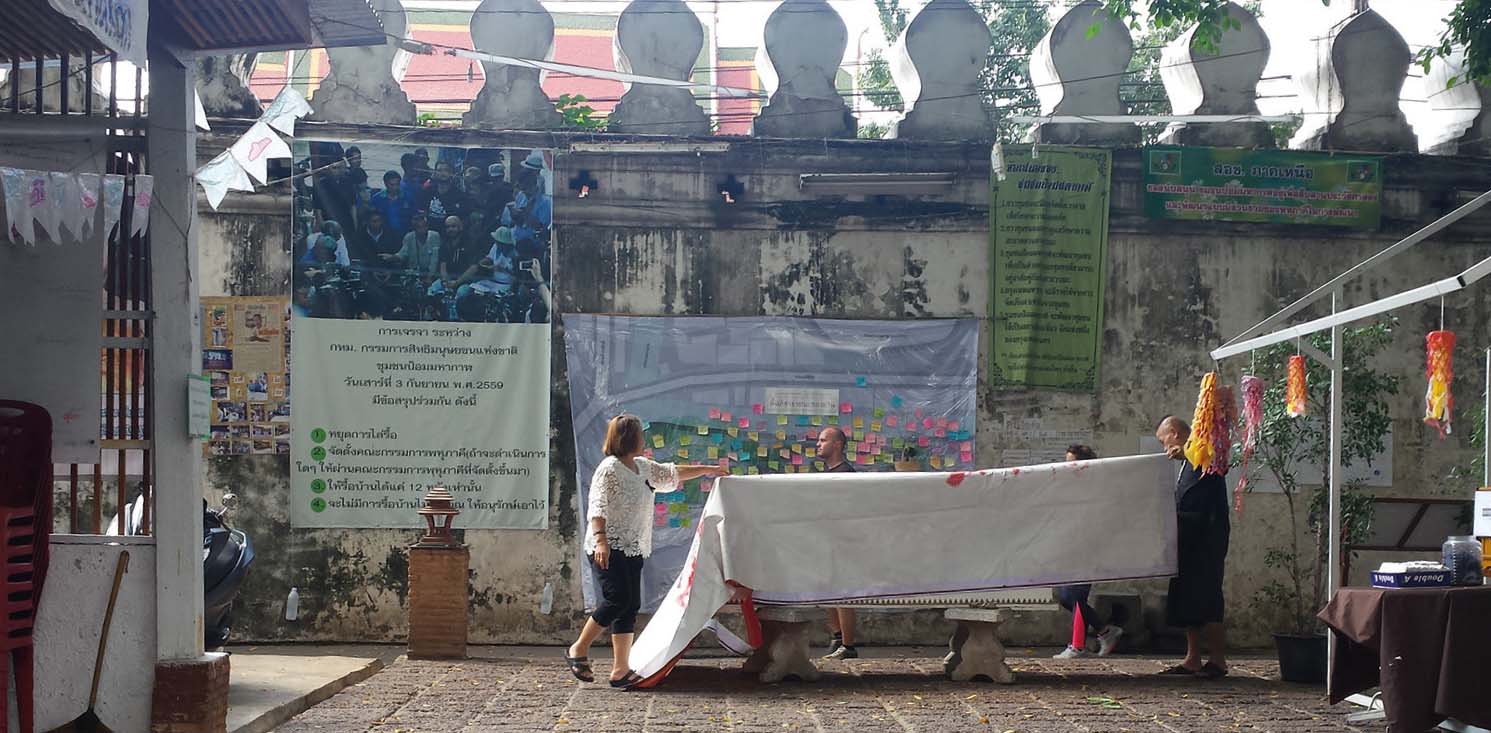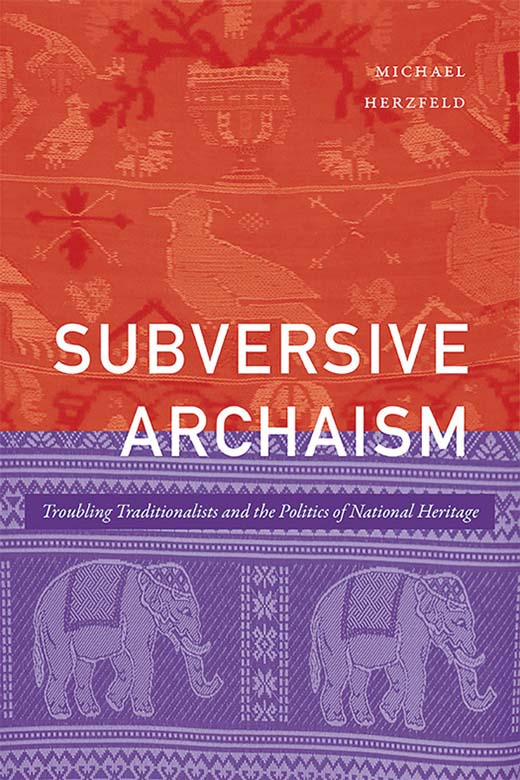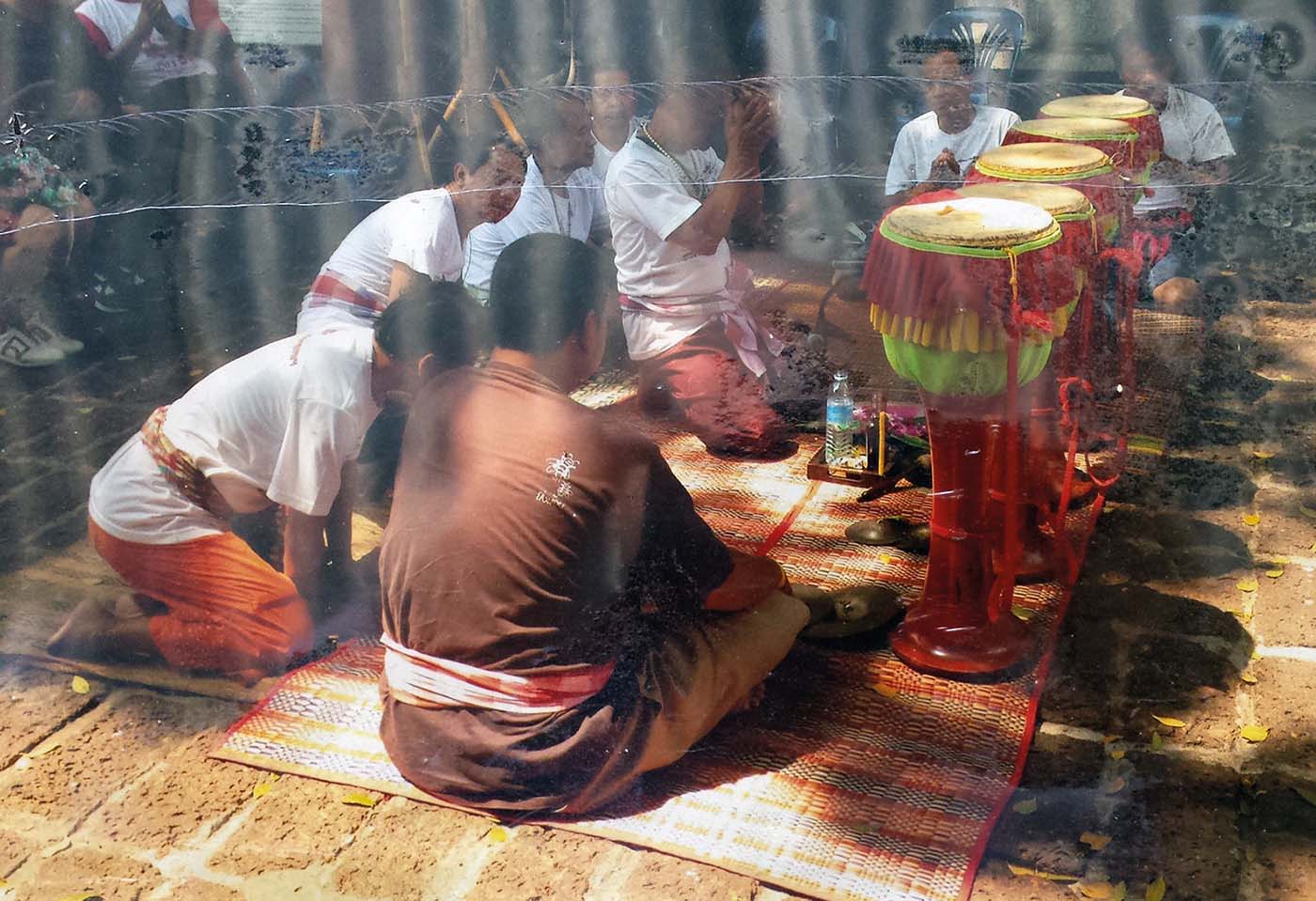Subversive Archaism from Greece to Thailand: A Conversation with Michael Herzfeld
Michael Herzfeld is the Ernest E. Monrad Research Professor of the Social Sciences at Harvard University. He also holds academic appointments at Leiden University, Shanghai International Studies University, the University of Rome-Tor Vergata, and the University of Melbourne. Herzfeld has authored numerous books and articles on a wide array of ethnographic, geographical, and theoretical topics. His latest book, Subversive Archaism, explores the politics of culture and national heritage through a comparative analysis of two sites: (1) Zoniana in Crete, Greece, and (2) Pom Mahakan in Bangkok, Thailand.
Our conversation was originally featured as an episode of The Channel podcast. In the following excerpt, Herzfeld describes subversive archaism and some related concepts to explore their utility for contemporary cultural theory.
The new book is Subversive Archaism: Troubling Traditionalists and the Politics of National Heritage (Duke University Press, 2022). You introduce a whole bunch of fertile concepts in the book, but I think it’s probably best to start with the titular phrase. What is subversive archaism? How do you define that?
These are communities that, essentially, are saying, “We represent national culture much better than the bureaucrats.” Both Greece and Thailand have cultural bureaucracies. They have other kinds of bureaucracies as well, and actually I’ve made practice of studying bureaucrats as well as other kinds of people. Despite whatever impression may be given, I also have some sympathy for the plight of bureaucrats, especially those who are caught in the lower orders of their systems. But to get back to subversive archaism: these people, for a variety of reasons, have come to conceive of themselves as representing national culture without the apparatus of state. So for them, there is a separation between the state (for which they either have contempt or which they experience as hostile) and the nation (to which they are fiercely loyal). This makes them a real problem for what I now call the “bureaucratic ethno-national state.” I prefer that rather cumbersome phrase to “nation-state” because what I think people forget is that the bureaucratization of ethnicity as nationhood is a relatively recent phenomenon, especially its recent enshrinement in the idea of a state structure. The subversive archaists are people who, whether consciously or otherwise, are reacting to that framework. They can manage very well, thank you, without the state. What they have made clear is that they have learned from the state something about the terms in which the nation conceives itself – the language, if you will, of tradition, heritage, and history. They know how to talk about that language and to use it themselves, but they don’t accept the authority of the state as defining what those things are. So that’s essentially what subversive archaists are. They are looking at archaic models.

Pom Mahakan: A symbolic funeral for a community about to be destroyed.
One of the things I talk about extensively in the book is something that, until recently anyway, critical heritage studies specialists hadn’t really focused on very much, which is the idea of social structure as a kind of heritage. So they are actually opposing to the top-down, bureaucratic structure of the state a different, a more self-organizational form, if you will. In the case of the Cretan village Zoniana, that form is the patrilineal clan. It’s one of the very few places left in Greece where you’ll find such patrilineal clans, and very powerful ones at that. In the case of Pom Mahakan, perhaps a little more indirectly through invocation – I’m never quite sure how aware they are of the historical antecedents in this sense – they are appealing to a pre-state form of social organization also, which in Thai is known as moeang and which has a very long and deep and wide history, not just in Thailand itself but in the whole Tai language area.

Cover of Subversive Archaism (Duke University Press, 2022).
In the introduction to the book, you write, “Local groups with distinctive cultural styles reveal the liability that the nation-state accepts in deploying the concept of heritage as its conceptual banner. Rebellious citizens can point to historical antecedents in their local cultural heritage that not only are older than the state itself but also represent alternatives to its disciplined modernity.” What is the relationship in general terms between these subversive archaists and the bureaucratic ethno-national state, as you termed it?
In a way, the situation is exactly the opposite of what we would normally expect. We’ve been hoodwinked – let’s face it, all of us around the globe – into thinking that the nation-state is the ultimate destination for human social organization. What [subversive archaists] understand very well is that that isn’t necessarily the case, and that they can manage quite well without the state in certain respects. This makes their traditionalism even more of a problem for the state because they can fight back at the state, saying, “Why are you bullying us like this? Why are you mistreating us? Why do you regard us as the lowest of the low?”
There’s also another built-in paradox here because the state, as Weber presents it, is essentially supposed to be a modern project. And yet it needs that traditionalism, but it needs to be able to control it. These people are saying, “We understand tradition, and we are not constrained by the sort of modernist project that leads you to be such featureless, unsympathetic, and generally unimaginative managers of the nation.” It all comes back again to that relationship between the state and the nation. I remember the late Ben Anderson saying at a conference we were both speaking at that the nation and the state were in a rather uneasy relationship. He said that that hyphen [in “nation-state”] represents a rather shaky marriage, but he didn’t think that it would collapse and divorce. In a way, I don’t think that subversive archaists necessarily want it to collapse and divorce either, but they want a space in which they can be more autonomous than the state is inclined to let them be.
One of the first conversations we ever had here in Leiden was about this term “crypto-colonialism.” What is this term, and how does it relate to subversive archaism?
Countries that have been humiliated but not actually militarily invaded are claiming that they never actually were under the colonial yoke. To cut to the chase, for me, crypto-colonialism is a condition in which a country claims to be independent but has had to make sometimes humiliating sacrifices in order to maintain that independence. That relationship can only be maintained if a local establishment is willing, essentially, to provide the sort of governmentality, if you will, that assures the colonial powers that it’s not advantageous for them to invade. The diagnostic feature of “crypto-colonialism” is the battle cry, “We were never under colonialism!” I do want to emphasize that I don’t develop these terms in order to use them in some kind of dictatorial and absolute way. To me, the question is not, for example, “Is China a crypto-colony or not? Is Greece? Is Thailand?” Those essentialist questions don’t get us very far. The question I would like to ask is, “What do we gain by thinking of a country as a crypto-colony?” I think that what we gain is a better appreciation of the extent to which culture can actually be used as a tool. It’s not soft power at all. It’s a form of structural violence that can sometimes damage a country in very humiliating ways. Here is the other feature that is important. The real post-colonies, the ones that are unambiguously postcolonial – Nigeria, India, Pakistan, Vietnam, the Congo – have no problem identifying a point of rupture with the colonial past. Now think about Greece and Thailand.

Through a plastic sheet darkly: Practicing tradition while defying the state.
In the book, you’re really clear to say that subversive archaism is not exactly left-wing or right-wing in the way that we traditionally think of those terms, and it’s also not exactly populism. How would you characterize the politics of subversive archaism and these kinds of appeals to the past?
I don’t think that it fits any of those labels. I’ve also tried to distinguish it from James Holston’s “insurgent citizenship” and from “social banditry” in Eric Hobsbawm’s language. I think it is a new category. Again, I don’t want to be absolutist about this: all of these things shade off into each other in various ways. You can probably find quite fascist versions of subversive archaism, but what strikes me about these two communities is that they are actually inclusive in ways in which the state often is not. So in Zoniana, I didn’t see any hostility to migrants. I think they see the right attitude to migrants as being their value of hospitality, on which they place a great deal of emphasis. More impressively, perhaps: in Pom Mahakan, after the tsunami in 2004, the community president made a speech in which she exhorted the residents to raise money with an auction of old clothes. Remember, this is a community of really poor people now being asked to raise money. But [the president] said, “We are in a community of suffering. That’s what we have in common. So we shouldn’t be looking at whether these people are Thai or foreign. We shouldn’t be looking at whether they’re Buddhist or Muslim or Christian. We share with them the experience of suffering.” That’s one reason why I would certainly distinguish subversive archaism, as I’ve encountered it, from right-wing populism.
Again, to be very clear, these are categories for use, not for imposition. I think it’s useful to talk about subversive archaism because what it points out is a paradox: that, sometimes, people can play the state at its own game and especially use the state’s own language of culture to push back at the state. That’s really what this is about in both cases.
This transcript has been heavily edited and abridged. The original interview includes a wealth of further details and discussion. To hear to the full conversation, listen and subscribe to The Channel podcast: https://shows.acast.com/the-channel
Benjamin Linder is Assistant Editor of The Newsletter.